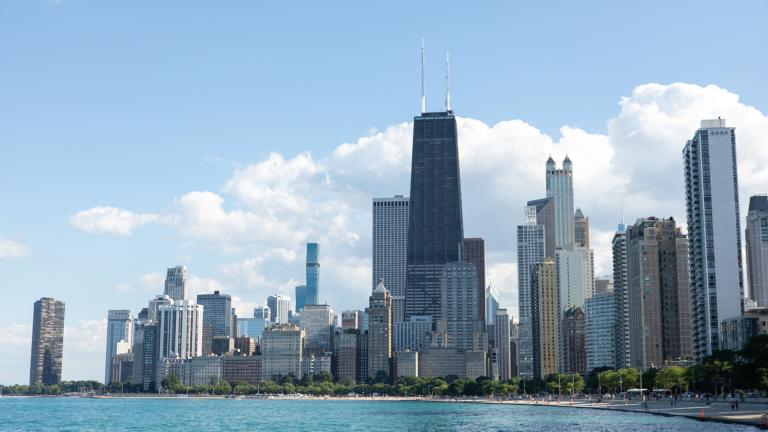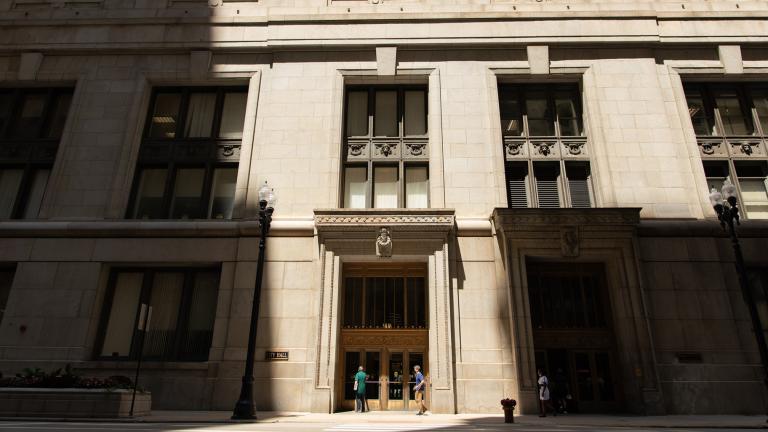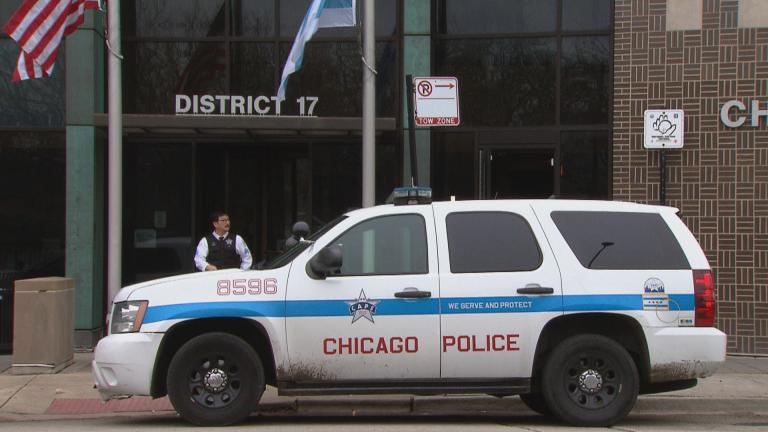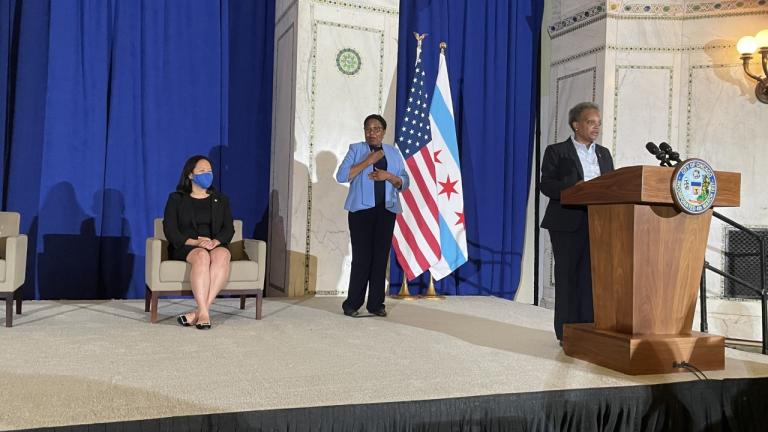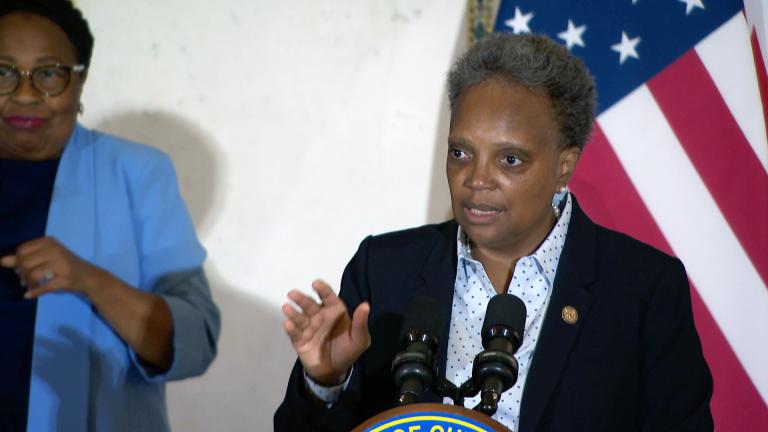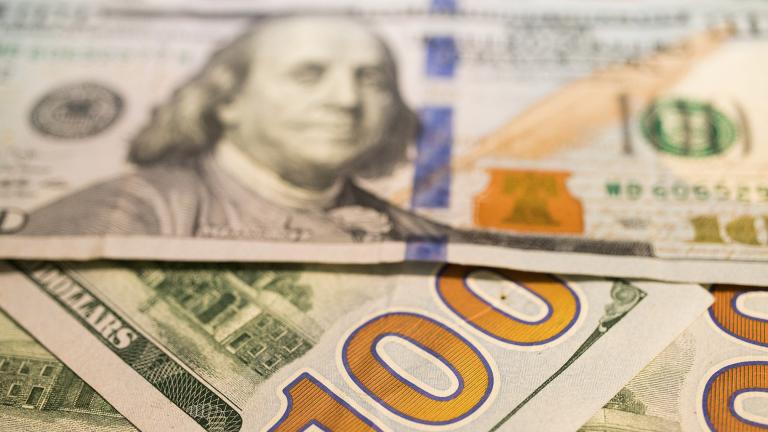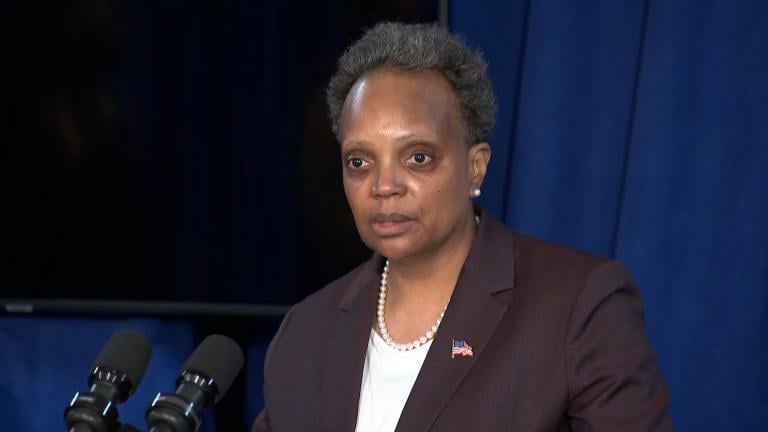The upgrade is likely to boost efforts by Mayor Lori Lightfoot to convince Chicago City Council members to support her budget, which she hopes to pass on Nov. 7.
Jennie Huang Bennett
Chief Financial Officer Jennie Huang Bennett faced pointed questions from members of the City Council’s Budget and Government Operations Committee on Thursday about the "advanced pension payment" proposal.
In 2019, Chicago paid more than $1.31 billion to its four pension funds benefitting police officers, firefighters, municipal employees and laborers. In 2023, Chicago will pay more than $2.34 billion to the same four funds.
Budget Director Susie Park unveiled the updated budget forecast during Wednesday’s meeting of the City Council’s Budget and Government Operations Committee, which holds a hearing to examine the city’s financial condition every quarter.
Skeptical members of the Chicago City Council blasted the proposal as an election-year stunt that would benefit oil companies without offering Chicagoans real relief from the pain at the pump.
Chief Financial Officer Jennie Huang Bennett defended the mayor’s spending plan as a thoughtful plan to “build a bridge toward financial stability while the economy continues to recover.”
It took more than four years to negotiate a new deal with the police union, as Mayor Lori Lightfoot demanded changes to the way officers are investigated after a 2017 probe by the U.S. Department of Justice found police officers routinely violated the civil rights of Black and Latino Chicagoans.
A final vote is set for Sept. 14 on an eight-year deal that offers more than 11,000 Chicago police officers annual average raises of approximately 2.5% — while imposing new rules on officers suspected of misconduct.
While Mayor Lori Lightfoot contends Chicago is “fiscally bouncing back,” Chicago’s top financial officials made it clear at a hearing Monday that the city’s finances are still mired in the deep hole created by the economic catastrophe of the coronavirus pandemic.
Before the pandemic, Chicago finance officials projected that the city would eliminate its longstanding imbalance between revenues and expenditures and reach structural balance in 2023. In all, the pandemic cost the city $1.7 billion, complicating those efforts.
Chicago is facing an uncertain financial future as Mayor Lori Lightfoot prepares to detail how she plans to close a projected budget deficit of $733 million in 2022, budget experts told “Chicago Tonight” on Thursday.
Promising that Chicago is “turning the corner” on the COVID-19 pandemic, Mayor Lori Lightfoot said Wednesday the city faces a projected $733 million budget shortfall in the 2022 fiscal year.
Chicago owes $32.9 billion to its four employee pension funds representing police officers, firefighters, municipal employees and laborers, according to the 2020 Certified Annual Financial Report — an increase of nearly 3.5% from 2019.
The delay comes as city officials wait for U.S. Treasury Department officials to decide whether they will give Mayor Lori Lightfoot the green light to use $465 million in federal funds to pay off high-interest debt the city incurred to balance its 2020 and 2021 budgets.
Mayor Lori Lightfoot has vowed to “force a reckoning” on the issue of pensions, which she called “the biggest problem” facing Chicago’s finances.
Mayor Lori Lightfoot wants to set aside about half of the $1.9 billion the city of Chicago expects to get from the American Rescue Plan signed by President Joe Biden in March to cancel high-interest debt.

